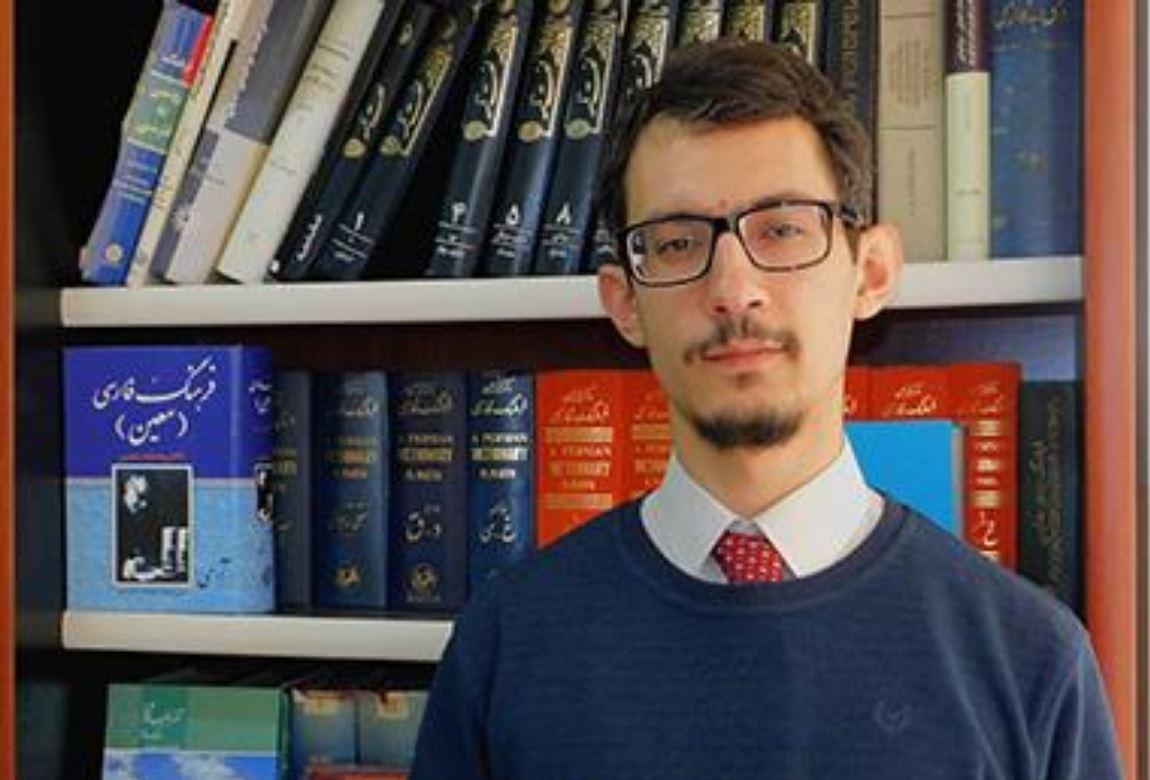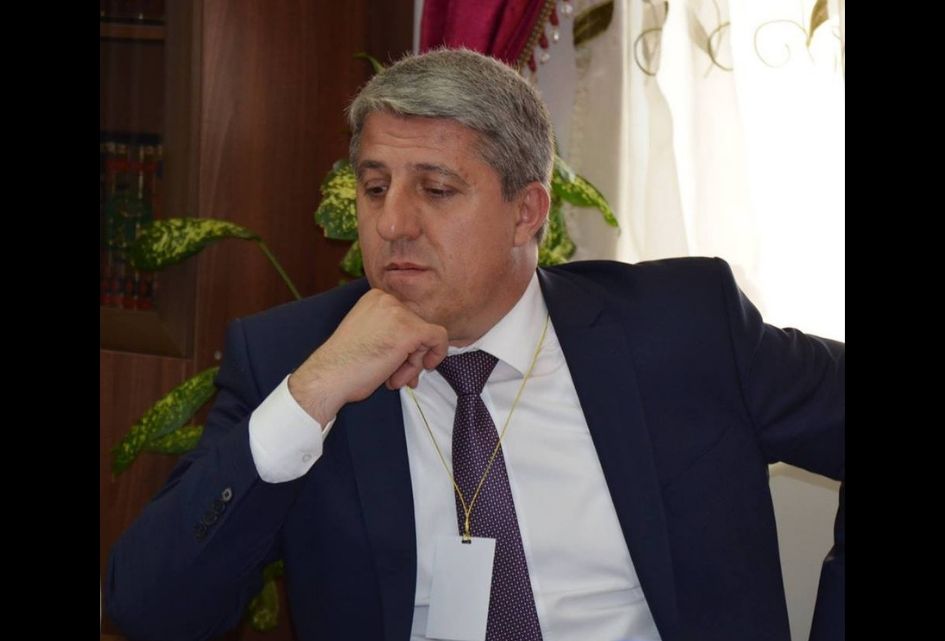Learn Persian through Early Classical Persian Prose
3 weeks, from Oct 30, 2023 to Nov 17, 2023
Online from Yerevan, Armenia
Applications for this course are closed, check out upcoming courses.
For inquiries please contact [email protected]
Check Upcoming Persian Language Courses
Persian Language Winter School, from Dec 01, 2025 to Dec 26, 2025 (4 weeks)
Join us for our 2025 Persian Language Winter School, open to international participants. Our program values hands-on learning, networking opportunities, personalized tutoring, academic discussions, delicious cuisine, and exciting travel excursions. Our winter session, lasting 4 weeks, will begin on December 1, 2025, and conclude on December 26, 2025. We are grateful for your dedication to learning Persian and are committed to providing an unforgettable educational experience. We encourage you to apply and look forward to welcoming you to our program. Thank you.
Learn MorePersian Language Summer School, from Jun 21, 2026 to Aug 28, 2026 (10 weeks (or 5-9 weeks))
The Armenian School of Languages and Cultures - ASPIRANTUM - is organizing a Persian language summer school in Yerevan, Armenia. The program starts on June 21, June 28, or July 5, and you can stay up to 10 weeks until August 28, 2025. If you prefer a shorter program, there are options for 5, 6, 7, 8, or 9 weeks. To get more information and apply, please refer to the details below.
Learn MoreYou're invited to apply to the "Learn Persian through Early Classical Persian Prose" online course offered by the Armenian School of Languages and Cultures - ASPIRANTUM. The course is scheduled to begin on October 30, 2023, and will run until November 17, 2023.
“Learn Persian through Early Classical Persian Prose” is a near-advanced course. Students need a solid background in Persian with at least intermediate skills in Persian reading comprehension.
The testimonials of ASPIRANTUM Persian language summer, winter, and online school alumni are available here: https://aspirantum.com/testimonials.
The “Learn Persian through Early Classical Persian Prose” online course will help the participants to master skills in reading and interpreting Classical Persian prose and learn the etymologies and various meanings of Persian words.
The three weeks “Learn Persian through Early Classical Persian Prose” online course offers 60 hours of intensive Persian language classes from Monday to Friday each week during 15 days of teaching. Every day the participants will receive Persian language instruction through Classical Persian prose for 4 hours. In addition to reading and discussing the texts in Classical Persian every day, the students will also read an article in Persian by an Iranian scholar about a unique aspect of Classical Persian prose. These readings are available in our syllabus. Every day the class will start with a discussion of the homework and the mentioned article. Following this, the class will read, interpret and decipher a particular chapter from different authors. Each day's class will end with a discussion and questions.
The syllabus of the “Learn Persian through Early Classical Persian Prose” online course is available here: https://aspirantum.com/curriculum/learn-persian-through-early-classical-persian-prose-syllabus.
We are planning to start the online classes at 9 PM Yerevan time. This time is mainly convenient for students from European and American countries. So depending on the geography of the applicants, the time may be changed, and all applicants will be informed about the time changes before the course.
To apply, please fill in the application form below.
ABOUT THE COURSE
Early Classical Persian (ECP) is the literary version of Early New Persian (ENP). It was in use during the 10-11th centuries in what was back then Eastern Iran (Khurasan, Transoxania, and adjacent areas) to produce literary, scientific (medical, astronomical, mathematical), religious, geographical, and historical works. A considerable amount of that literature has survived until our days and is an inseparable part of Persian literary heritage.
The line that can be drawn between Early Classical Persian and Late Classical Persian is mainly stylistic and historical and only partially linguistic.
The literature that has been produced in ECP includes precious specimens of Classical Persian prose, such as Muqaddama-yi Šāhnāma-yi Abu-Mansuri, Tarǰuma-yi Tafsir-i Tabari, Tarǰuma-yi Tārix-i Tabari (Tārix-i Bal’ami), Hudud-al-‘Ālam, Tārix-i Baihaqi, Dānišnāma-yi ‘Alāyi (by Avicenna), Safarnāma-yi Nāsir-i Xusraw, Tārix-i Sistān, Qābus-nāma, Siyāsat-nāma, to name only a few. The poetry of Rudakī, Farroxī, Unsurī, Asadī Tusī, Firdawsī, Xayyām, and many others also forms part of this profound literature.
Proficient knowledge of Early Classical Persian and familiarity with ECP literature is the foundational basis for any research into Classical Persian literature and, by extension, also into Persian studies. Any student planning to become fully proficient in Persian and Persian literature must be familiar with ECP literature, as it lies at the foundation of Persian literature.
This intensive course is designed for all students who have an avid interest in (Classical) Persian literature and have at least intermediate-level mastery of Modern Literary Persian.
The course is designed to last three weeks (5 days each week and 4 hours per day). Students will have readings in Early Classical Persian texts accompanied by extensive grammatical, lexical, historical, and cultural explanations and commentary. They will be introduced to the grammatical, stylistic, and idiomatic concepts that govern this literary language. Besides the readings, in almost every lesson, students will be introduced to the various linguistic, literary, historical, orthographic, and other aspects of Classical Persian. During the course, comparisons will be made between Classical Persian, its linguistic and literary predecessor Middle Persian, and parallel literary traditions, such as Early-Judeo Persian literature.
To get a natural touch with these literary texts, certain parts of the classes will be dedicated to manuscript readings. After each class, students will have homework assignments to help them retain and internalize the information acquired during the class.
Texts to be read during the course:
Muqaddama-yi Šāhnāma-yi Abu-Mansuri
Tarǰuma-yi Tafsir-i Tabari
Tarǰuma-yi Tārix-i Tabari (Tārix-i Bal’ami)
Hudud-al-‘Ālam
Tārix-i Baihaqi (Muhammad b. Husein Baihaqi)
Tārix-i Sistān
Dānišnāma-yi ‘Alāyi (Avicenna)
Qābus-nāma (Keykavus b. Iskandar)
Bayān ol-adyān (Abu al-Ma’ali Mohammad b. Ne’mat Alavi Balkhi)
Topics of the day (to be discussed during the course):
Early Classical Persian: An overview of the historical, linguistic, and literary background.
The origins of Classical Persian Literature: An overview of Middle Persian (Pahlavi) Literature.
From Classical to Modern Persian: The phonetic evolution of Persian.
The orthographical evolution of New Persian.
The earliest manuscripts of Early Classical Persian.
Parallel Traditions: Early Judaeo-Persian and its literary heritage.
The Tafsir of Cambridge: Reading the manuscript (MS Mm.4.15; 1231 C.E.)
Reading the Kitāb al-abnīya: The oldest surviving ms. in New Persian (Codex Vindobonensis, Seligmann edition, 1859).
The Early Classical Persian Poetry: An overview.
The Lexicon of the ENP: The borrowings from the substratum languages
During the “Learn Persian through Early Classical Persian Prose” classes, the following components will be covered every day to foster the Persian language knowledge of participants:
Grammar: Everyday class will cover the main grammatical concepts of Classical Persian with parallels to modern Persian, Middle Persian, and Old Persian.
Vocabulary: During the three weeks course, it is anticipated that the participants will learn more than 600 Persian words that will facilitate their further study of classical Persian literature.
Speaking: Every day, the classes will push the students to exercise their speaking abilities through discussions and conversations.
Writing: Each day, the participants will have assignments and homework to complete for the next day.
Reading: Everyday students will read and discuss the Classical Persian texts.
This Persian language school is designed for participants who want to make well-grounded progress in their knowledge of the Persian language and deepen their knowledge of Persian grammar, literary language, and classical prose.
The “Learn Persian through Early Classical Persian Prose” online course will have 1 group of up to 8 participants. The participants must have at least an intermediate level of Persian language knowledge before starting this course with ASPIRANTUM.
ASPIRANTUM’s Persian language schools are organized so that undergraduate and graduate students, researchers, professors, and anyone interested in learning Persian benefit from it the most. So everyone with an intermediate level of Persian is welcome to apply and participate in ASPIRANTUM’s “Learn Persian through Early Classical Persian Prose” course online from October 30, 2023, till November 17, 2023.
Instructor: The "Learn Persian through Shahname" Mr. Ruben Nikoghosyan will teach the online course, and Professor Vardan Voskanian will be the assistant instructor during this course (see profiles below).
Deadline
The deadline to apply to the 3-week “Learn Persian through Early Classical Persian Prose” online course is October 3, 2023.
To apply, please fill in the application form below.
Participation fee
The participation fee for the three weeks “Learn Persian through Early Classical Persian Prose” online course is 1490 USD.
Discount
Need-based discounts will be available. Please email [email protected] describing your situation, and we will consider your case individually.
(Each participant of this online school may find sources of financial aid from their own University/School/Community or other relevant foundations).
Letter of Invitation
If necessary, ASPIRANTUM will provide applicants with an official letter to support scholarship applications.
Maximum capacity in the group: 8 students
Communication medium: The online course will be organized through Zoom.
To apply, please fill in the application form below.
Registered participants should send 100% of the participation fee online before October 19, 2023, via a Visa or Mastercard.
For questions and inquiries please contact [email protected] or Whatsapp Dr. Khachik Gevorgyan (linkedin.com/in/khachikgevorgyan) +374-91-557978
Teachers

Ruben Nikoghosyan
Instructor of Persian LanguageMr. Nikoghosyan has read the Shahname not only in Persian but also has carefully studied the Armenian, Russian, English and German translations of this masterpiece. He knows the history of every single word in Shahname and is going to share his knowledge with students in an impressive manner.

Vardan Voskanian
Instructor of Persian LanguageVardan Voskanian has 26 years of experience teaching Persian to foreign students in an unforgettable manner.
Course Syllabus
Learn Persian through Early Classical Persian Prose Syllabus
The course is designed to serve as a general introduction to the Classical Persian language and literature. It will provide tools for reading and analyzing the extensive corpus of the Early Classical Persian prose texts. The method adopted for the current course envisions an in-depth familiarity with the grammatical, lexical, phraseological, stylistic, and literary aspects of the Early Classical Persian language and literature after its completion. During each class, the participants will read, analyze and interpret extensive sections from a selection of significant (Early) Classical Persian texts while discussing questions pertinent to their fields of interest and research. Besides the readings, attention will be paid to various aspects of Classical Persian studies. Thus, a specific topic will be explained in detail almost every day and discussed with the participants. In addition, during some of the classes, the participants will read some of the oldest Persian manuscripts.
Learn MoreApplications for this course are closed
For inquiries please contact [email protected]
